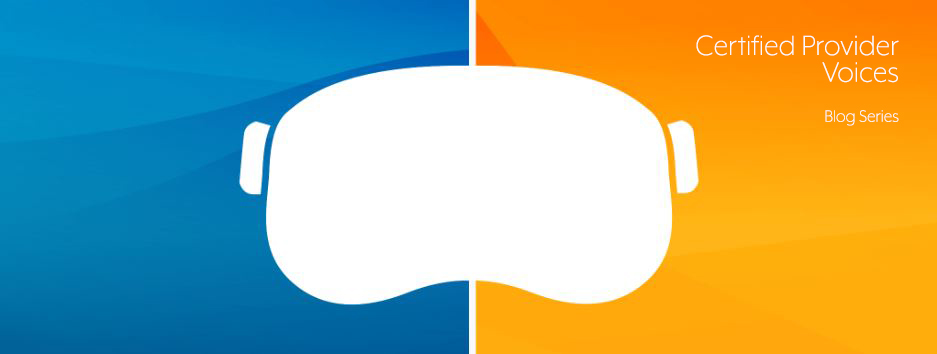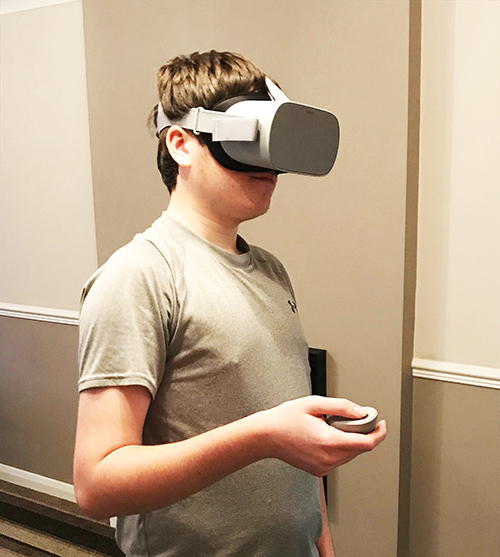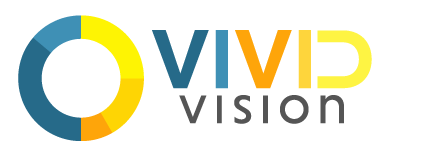Certified Provider Voices: How Stevenson Jones Opticians uses Vivid Vision Home

_________________________________
As part of our Certified Provider Voices series, we interviewed John Stevenson from Stevenson Jones Opticians in Newcastle-Under-Lyme in England about his use of Vivid Vision Home. In this series of blog posts we interview our providers about some of their favorite or interesting ways of implementing Vivid Vision and treating patients. We hope providers and patients alike will find this series helpful, supportive, and informative -- leaving them feeling confident in their use of Vivid Vision and ultimately helping more patients get treatment and care they need!
_________________________________
My main purpose for buying Vivid Vision was to incorporate a new tool in my existing in-office Vision Therapy program. I was also intrigued by the potential it has for patients I could only reach through a remote therapy option. I routinely get calls from patients who cannot travel for regular in-office therapy sessions and I always wished there was something truly effective that could be done for them. So, I suppose you could say that I wanted to prove to myself that I could encourage these patients to realize some changes in their visual process using Vivid Vision Home even if they couldn’t also do in-office VT.
Overall, these are my top basic tips to colleagues who have Vivid Vision and want to start using Vivid Vision Home:
-
Ensure you have given full correction if necessary
-
Use the Easy/Medium/ Hard settings rather than trying to set everything up individually, that can come later
-
Try to keep the prism to a minimum, even try without prism if the patient can cope without suppressing
-
Use Bubbles from the start
I know that right away some colleagues may resist a “home only” vision therapy model and I know that Vivid Vision, as a company, has always promoted their system to be used in conjunction with in-office therapy. And, I agree that that is the best scenario. But I also know that realistically I was missing out on providing some kind of care to some portion of the population and that perhaps I could alter my model a bit to benefit patients as well as me and my practice. I also want to be careful here and recognize that this works in my practice with my business model, my philosophy, my patient base, etc. and is by no means a solution for everyone. But, if it helps a few of my colleagues gain confidence, adopt a different approach, reach more patients, I am happy to help.
 In my practice, I consider any patient with amblyopia to be a candidate for Vivid Vision Home therapy. I have experienced progress, using Vivid Vision Home only, in amblyopic patients ranging from age 6 to 45. This includes strabismic amblyopes as well as refractive amblyopes. Most of them are also living quite a distance away.
In my practice, I consider any patient with amblyopia to be a candidate for Vivid Vision Home therapy. I have experienced progress, using Vivid Vision Home only, in amblyopic patients ranging from age 6 to 45. This includes strabismic amblyopes as well as refractive amblyopes. Most of them are also living quite a distance away.
Also, I get a decent amount of qualified patient leads directly through Vivid Vision’s marketing efforts which I find a big help. The patients that contact my office though Vivid Vision’s website or advertising efforts are patients who already know they have a problem, are actively seeking treatment, and oftentimes have been told there is nothing that could be done to help them. I may not agree with them that the answer is as simple as just doing Vivid Vision Home, but I take the opportunity to get them in for an examination and I provide them with ample education about their options. We discuss prescription lenses as well as in-office vision therapy. I tell them the ideal scenario is typically a set of glasses, weekly sessions of in-office vision therapy, accompanied by home therapy using Vivid Vision Home. I typically recommend they start off with a month of Vivid Vision Home and then we review their progress and how they feel it’s going. I found I can get results using just Vivid Vision Home, so I am comfortable prescribing Vivid Vision Home alone.
This set-up also allows me to evaluate how committed the patient is to therapy in general. If a patient (child or adult) isn’t consistent in doing Vivid Vision Home for one month I find it unlikely they will stay committed to my traditional therapy options either. They definitely not going to stick with Brock String, Flipper, and Hart Chart type activities at home. In my scenario, the patient sees the risk as relatively minimal, they are signing up for a month of therapy and they need to purchase a VR headset. This is typically easier for them to commit to (both time and money wise) up front than a full in-office therapy program. It’s like a taster for them of what is possible. Some patients stay on just the Vivid Vision Home. I have seen success with this option, and there is now research that supports this model but it is usually those patients that distance prevents them from coming in-office to see me. I’ve had multiple Vivid Vision Home patients convert over to my in-office program after trying just Vivid Vision Home. I find this to be an easy “sell” actually and I find these patients have been extremely motivated and dedicated to their therapy.
In my practice, the price I charge my Vivid Vision Home patients covers the license cost plus my time and expertise. It is essentially equivalent, broken down on a per session basis, with what they would be paying for in-office visits. I spend about 30 minutes per month per patient and I review all of my Vivid Vision Home patients on a weekly basis. I have not found pricing to be an obstacle for patients in my market. Especially because I provide them with the “taster” option first.
Currently, I am using Vivid Vision Home on any of my amblyopia patients, including strabismic amblyopes. I have also used it (in conjunction with in-office vision therapy) for patients with visual neglect. And, I also utilize the “visual processing” activities within Vivid Vision as well as the vergence activities.
Find a Provider clinical update all clinics certified provider vivid vision home vivid vision home amblyopia stevenson jones opticians vision therapy strabismus
